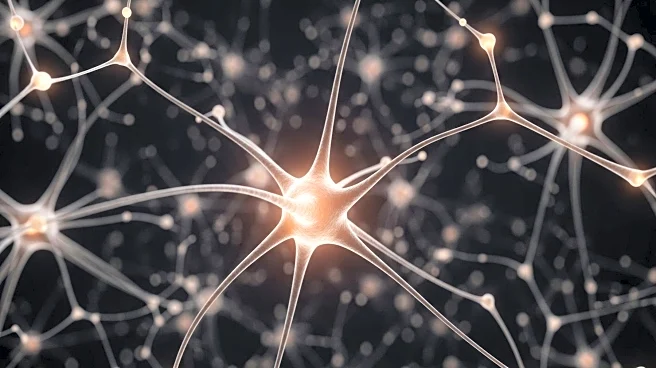What is the story about?
What's Happening?
A study published in Nature Neuroscience has identified specific neurons in the visual cortex, called IC-encoders, that play a direct role in representing visual illusions. Led by Hyeyoung Shin from Seoul National University, the research involved collaboration with the University of California, Berkeley, and the Allen Institute. The study used advanced brain imaging techniques to pinpoint neurons responsible for illusory contours, such as those seen in the Kanizsa triangle. This discovery provides insights into how the brain processes visual information and fills in gaps based on prior knowledge.
Why It's Important?
Understanding the neural basis of visual illusions can enhance our knowledge of perception and cognitive processes. This research may have implications for developing treatments for visual disorders and improving artificial vision systems. By revealing how the brain interprets incomplete visual stimuli, the study could inform the design of more effective visual aids and technologies. Additionally, it may contribute to neuroscience research on how the brain integrates sensory information and makes inferences based on experience.
What's Next?
Future research may focus on exploring the broader applications of these findings in neuroscience and technology. Scientists could investigate how IC-encoders interact with other neural circuits to influence perception. The study may lead to advancements in brain-computer interfaces and the development of new visual processing algorithms. Researchers may also explore the potential for using these insights to enhance virtual reality experiences and improve visual learning techniques.
Beyond the Headlines
The study challenges traditional views of perception as a passive process, highlighting the brain's active role in interpreting sensory information. It raises questions about the nature of reality and how our brains construct our perception of the world. The research may influence philosophical discussions on consciousness and the subjective experience of reality. Long-term, this could lead to a deeper understanding of the relationship between perception, cognition, and consciousness.
















